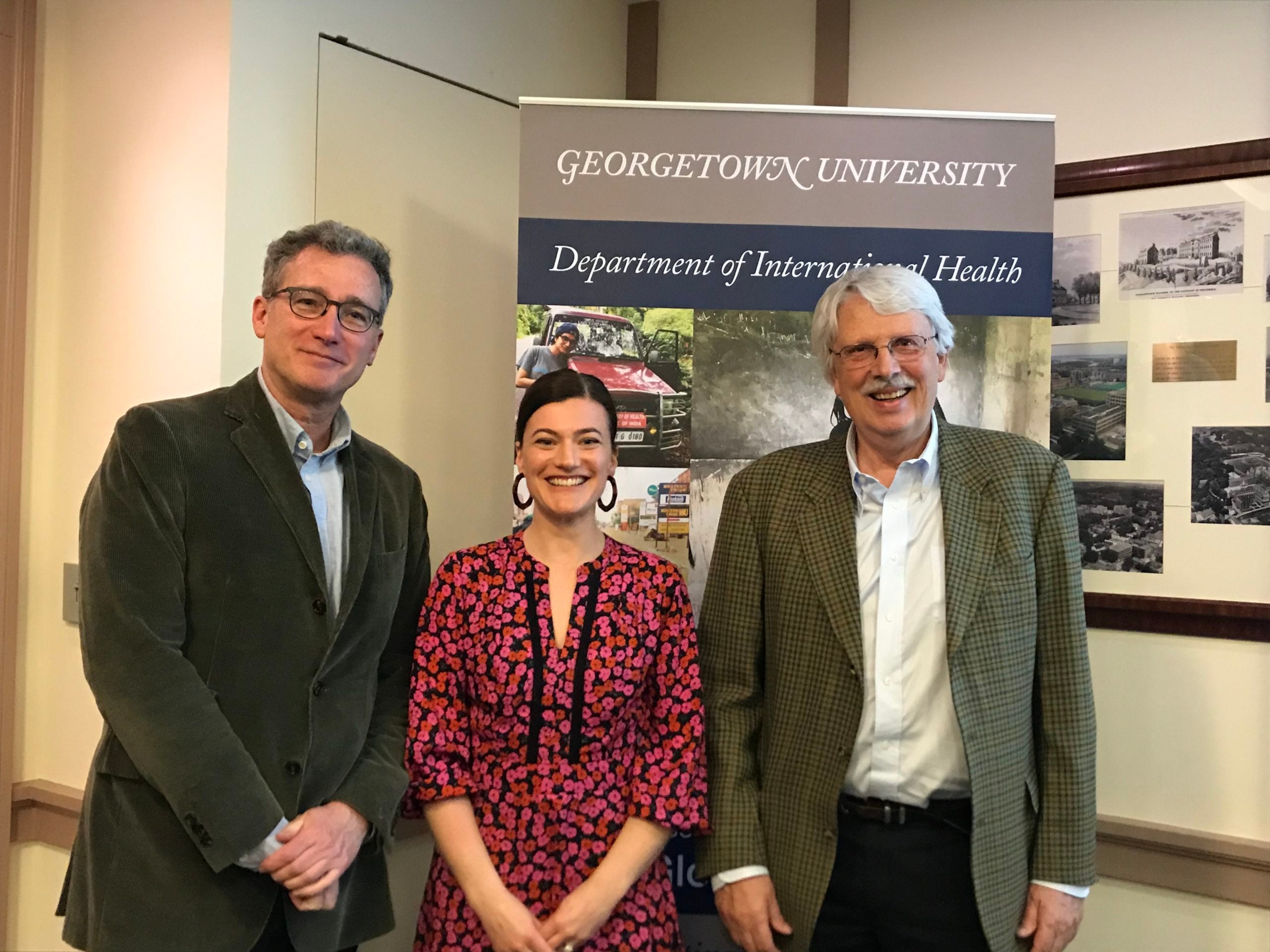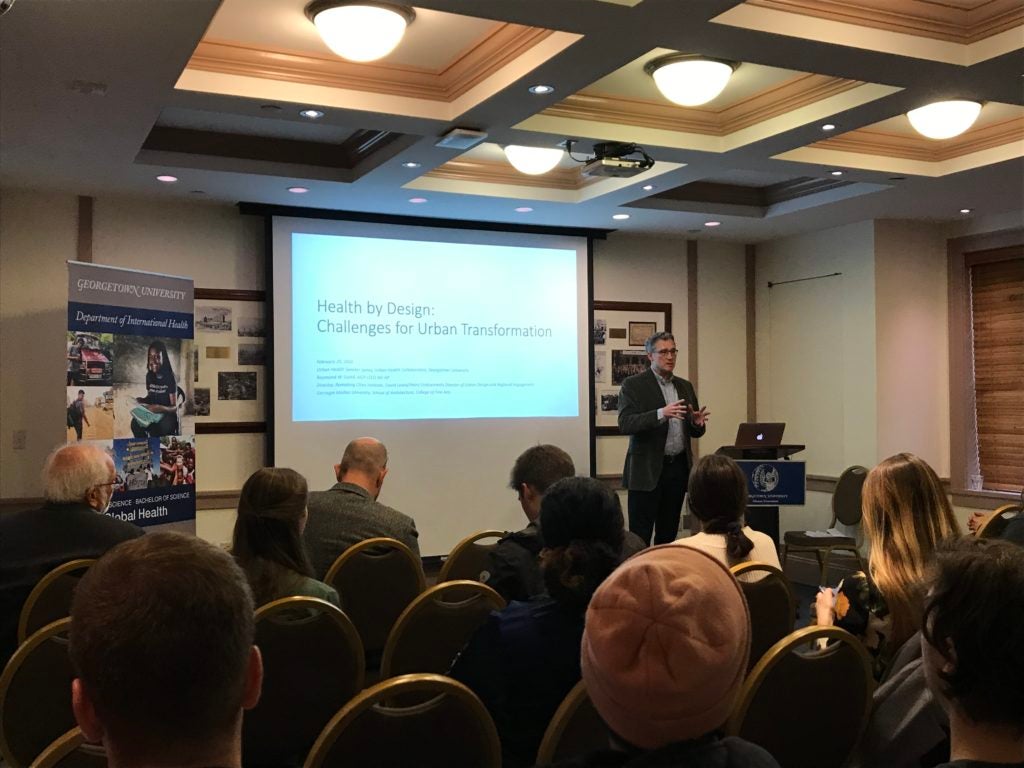Department Hosts Lecture on Urban Planning for Health

Posted in News Story
In late February 2020, the Department of International Health welcomed Ray Gastil, Director of the Remaking Cities Institute (RCI) and David Lewis/Heinz Endowments Director of Urban Design and Regional Engagement at Carnegie Mellon University to address the Georgetown community as part of the Urban Health Speaker Series. Gastil’s lecture, “Health by Design: Challenges for Urban Transformation,” addressed the role of health in urban planning.
To begin, Gastil introduced the concept of urban transformation using Pittsburgh, Pennsylvania as an example. Pittsburgh, where he is based, has undergone major transformation over the last century: from an industrial river city in the early 20th century to one with an eye on the future committed to riverfront development. Gastil maintained that health is the most important driver of urban transformation, with urbanists playing an important role in changing the context of cities to make individuals’ default decisions healthy. The idea that complete communities and neighborhoods must be inclusive, safe, and resilient guides his work.
Looking to the future, Gastil explored new opportunities to improve health through urban design. Expanding on the First Mile/Last Mile concept, which confronts how to encourage public transportation use, Gastil highlighted Colombia’s 2014 Medellin Declaration, which encourages economic and social mobilization through a system of urban escalators. To conclude, Gastil shared his working hypothesis, that there is enough evidence for policy, action, and further research on the intersection of health and urban transformation.
The Georgetown Urban Health Collaborative thanks Mr. Gastil for convening students, researchers, and faculty to better understand how urban design and health intersect.
The Urban Health Collaborative is housed in the Department of International Health. Launched in 2017, the UHC aims to champion urban health research & development in cities around the world, as well as the Washington, DC area.

